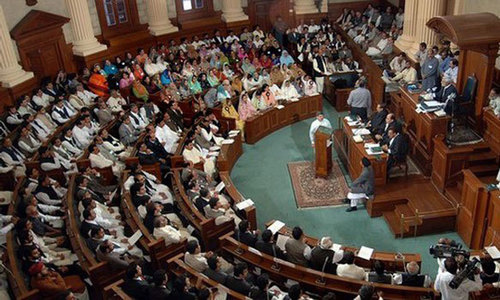PM Khan expresses 'disappointment' at Punjab lawmakers' decision to raise their own salaries

Prime Minister Imran Khan on Thursday expressed "extreme disappointment" at the Punjab Assembly's decision to raise the salaries of Punjab's public representatives.
Yesterday in the Punjab Assembly, the bill to raise the salaries of public representatives sailed through with complete consensus and within five minutes as it had raised salaries and fringe benefits of all assembly members, including the chief minister, ministers, speaker, deputy-speaker.
After the passage of the bill, the speaker’s salary has jumped from Rs37,000 to Rs200,000 per month and his deputy would now get Rs185,000 instead of Rs35,000 and so would be cabinet members and advisers. The members of Punjab Assembly (MPAs) are now entitled to Rs80,000 per month rather than Rs18,000 and their utility bills entitlement has gone up to Rs200,000 instead of earlier Rs120,000. This fiscal adjustment, naturally, had no one to oppose in the House and the bill was passed with a few minutes.
Taking to Twitter the day after the bill was passed the prime minister said:
"I am extremely disappointed by decision of Punjab Assembly to raise pays and privileges of MPAs, ministers and especially the chief minister."
The prime minister further said that such measures may have been justified once "prosperity returns to Pakistan ... but now, when we do not have resources to provide basic amenities to all our people, this is untenable."
Minister for Information Fawad Chaudhry also commented on the situation via Twitter and said that its seems that the Punjab Government is unaware of the prime minister and the government's austerity policies, "otherwise such sham exercises of awarding huge benefits to themselves would not have happened."
The information minister's statement, however, was in direct contrast with his earlier views on the subject. Prior to the prime minister expressing his disappointment, Chaudhry had appeared to favour the pay raise.
"I think their [Punjab lawmakers] salaries were really low," he said. "It was Rs80,000, which they've now raised to Rs150,000. If you don't do this then the middle class will never be able to contest elections."











































